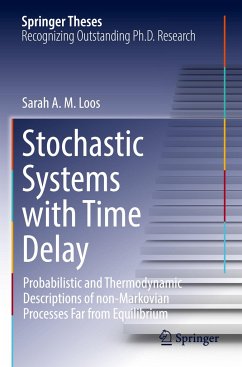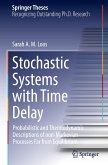The nonequilibrium behavior of nanoscopic and biological systems, which are typically strongly fluctuating, is a major focus of current research. Lately, much progress has been made in understanding such systems from a thermodynamic perspective. However, new theoretical challenges emerge when the fluctuating system is additionally subject to time delay, e.g. due to the presence of feedback loops. This thesis advances this young and vibrant research field in several directions. The first main contribution concerns the probabilistic description of time-delayed systems; e.g. by introducing a versatile approximation scheme for nonlinear delay systems. Second, it reveals that delay can induce intriguing thermodynamic properties such as anomalous (reversed) heat flow. More generally, the thesis shows how to treat the thermodynamics of non-Markovian systems by introducing auxiliary variables. It turns out that delayed feedback is inextricably linked to nonreciprocal coupling, information flow, and to net energy input on the fluctuating level.
Bitte wählen Sie Ihr Anliegen aus.
Rechnungen
Retourenschein anfordern
Bestellstatus
Storno








